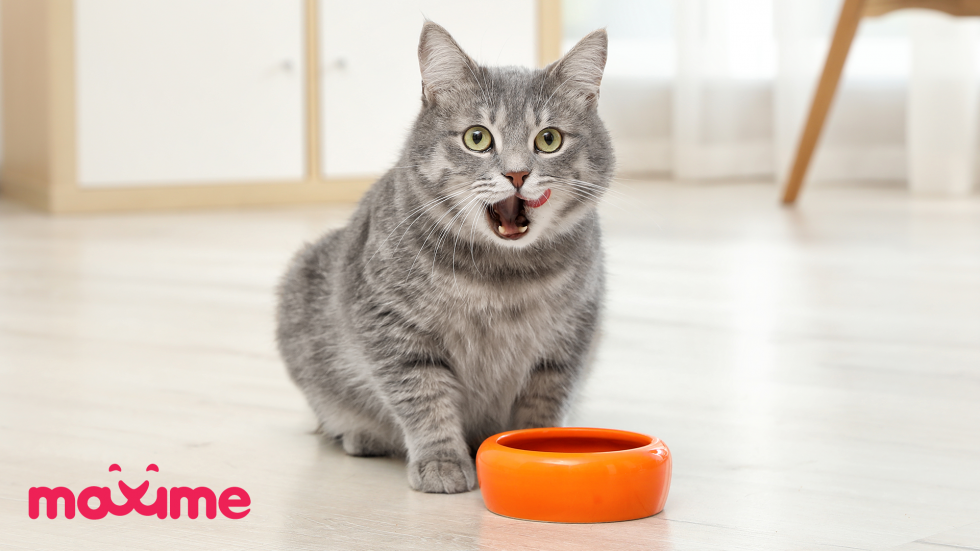
The Basics of Feline Nutrition
We want our feline friends to live a long life. And to ensure that they live up to their full potential, we must provide them the nourishment they need by starting with a balanced diet.
However, cats have a reputation for being picky eaters! If you’re a cat paw-rent, you might have previously found yourself in a pinch on what you should feed your cat in order to get their appetite going again. At Maxime, we’ve gathered our team of experts and collected tips on how you should structure your cat’s diet to help them live a long and purr-fectly healthy life.
What cats eat
Cats are obligate carnivores. They need a lot of animal-based protein and unlike dogs, cats can never thrive on a vegan or vegetarian diet alone. Felines are big meat eaters and for a good reason — they use protein as a source of energy and need it in large quantities. Meat also provides other essential nutrients like taurine and vitamin A that cats need in order to have good vision, a strong heart, and a healthy coat.
While it may seem like a good reward for a cute purr or two, cats should not be fed human food. Our feline buddies have sensitive stomachs compared to their canine counterparts; ordinary human dishes might be too salty and any slight change in their diet could easily irritate their digestive system. And while many cats love fish because of its nutritional content and smell, a fish-only diet is also not acceptable for daily feeding since not all fishes contain the essential nutrients that a cat’s diet requires.
A cat’s nutritional needs
To keep your cattos in good shape, they must be fed a balanced diet that contains these essential nutrients:
Water – As with all other living beings, water is very important for cats. Domestic cats were originally desert animals and because of that, they are predisposed to holding a lot of urine, which in turn can cause bladder problems and other health issues if they don’t get enough water. Make sure that your feline buddies always have access to a source of fresh, clean drinking water.
Proteins – Proteins are a must in any cat’s diet. Animal-based protein, specifically, contains all the essential amino acids that your cat needs. Proteins are the building blocks of organs, tissues, and the heart. A complete and balanced cat food should contain proteins from real meat ingredients like fish, chicken, and beef.
Vitamins and minerals – A balanced amount of vitamins and minerals are necessary to aid your cat’s metabolism, which is why it’s important to look for these in your cat food’s ingredients list.
Carbohydrates – Carbohydrates also play a significant role in your feline’s diet as they serve as a highly digestible and easily available energy source. Carbs can be easily gained from wheat, rice, and other whole grain ingredients, which can be commonly found in most commercial cat foods.
Choosing the right cat food
Selecting the right cat food for your babies will still ultimately depend on their age and weight. Kittens, for example, will require a different diet altogether than their senior counterparts, since they require more nutrients for their development. Adult cats, in general, should have a complete, balanced, and highly nutritious diet to meet their energy output.
Choose a commercial cat food that meets regulatory standards set by the Association of American Feed Control Official Standards (AAFCO). The AAFCO sets the guidelines for the nutritional profile of all pet foods and as long as your choice of cat food is formulated in accordance with these guidelines, you can be guaranteed that your cat food is a complete and balanced meal, perfect for your cat’s daily nutritional needs.
Try the NEW Maxime Cat Food now, which is enriched with enriched with taurine and balanced minerals to help your cat #LiveTheBestLifeTogether with you! Each bag of Maxime Cat Food is formulated with easily digestible ingredients like real tuna to delight your cat after every meal, while giving them the proper nourishment they need.
Reference links:



